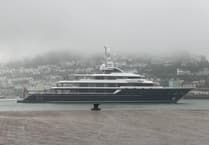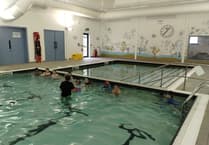A remotely-operated drone boat will soon be deployed in the River Dart in Dartmouth as part of a 12-month pilot scheme to monitor water pollution in three ports in the South West.
From September, a British consortium of marine tech firms will deploy three electrically-powered Uncrewed Surface Vessels (USVs) in each of the ports in Dartmouth, Falmouth and Plymouth.
Among the advantages of using USVs is that they cover a wide area as they do not operate from a single fixed location, which is the way most water testing is currently carried out.
Instead of taking water samples, the drones will log continuous data and share it with the port and harbour authorities.
The publicly-funded ‘Smart Ports, Clean Waters’ project is being led by Somerset-based marine acoustic monitoring experts, MSeis, and supported by USV specialist HydroSurv and sensing instrument firm, Chelsea Technologies.
MSeis managing director, Mark Higginbottom, said the project will make “a real difference to the environmental monitoring of our harbours and coastal waters”, while David Hull, CEO of Exeter-based HydroSurv, said the aim was to demonstrate the potential of deploying zero-emission USVs while providing “accurate and unbiased information to the community”.
The project comes amid rising concerns over water quality standards. According to the Environmental Agency, only 14 per cent of UK rivers currently meet the criteria for 'good ecological status'.

In May, four new monitored bathing sites were announced in the River Dart Estuary in Warfleet, Dittisham, Stoke Gabriel and the Steamer Quay in Totnes.
However, experts such as Alan Smith, a water industry veteran with more than 60 years’ experience, dismissed the list as “window dressing”, while The Friends of the Dart group stressed that it was not a green light for bathing.
Campaign group Top of the Poops revealed that the River Dart Estuary was polluted by sewage 597 times in 2022. At Stoke Gabriel, raw sewage was dumped into the river for more than 120 hours, while the Steamer Quay saw more than 30 dumps, amounting to 63 hours.
Water pollution is mostly caused by agricultural run-off, untreated sewage and hydrocarbon contamination.





Comments
This article has no comments yet. Be the first to leave a comment.